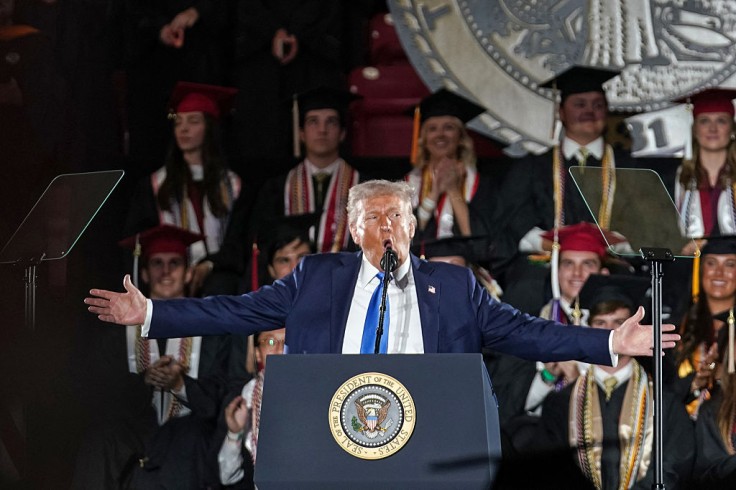President Trump Addresses Alabama Graduates Amid Cheers and Protests Over Policy Stances
By
President Donald Trump delivered a commencement address at the University of Alabama on May 1, 2025, igniting a polarized response from the campus community. Speaking to thousands of graduates at Bryant-Denny Stadium, Trump emphasized conservative priorities, including a commitment to "keeping men out of women's sports," a stance tied to his administration's ongoing Title IX enforcement efforts targeting transgender inclusion policies in schools.
The speech marked a high-profile appearance by the sitting president at a university commencement, amplifying debates over free speech and campus inclusivity. Trump also highlighted his administration's economic policies and educational reforms, urging graduates to "embrace American values" in their careers. The event, attended by over 7,000 graduates and their families, was heavily secured due to anticipated demonstrations.
Reactions to Trump's presence underscored Alabama's cultural and political divides. According to Fox News, many graduates erupted in applause when Trump promised to protect women's sports, reflecting support among some students for his Title IX policies aimed at barring transgender women from female athletics. Conversely, AL.com reported that dozens of students, organized by groups like the Alabama Student Coalition for Justice, protested outside the stadium, condemning Trump's appearance as "divisive" and arguing it overshadowed their graduation with his "hateful rhetoric" on transgender issues and other policies. These contrasting responses highlight the challenges universities face in balancing free speech with inclusive campus environments.
The University of Alabama's decision to invite Trump, approved by its board of trustees, drew national attention, especially given Alabama's conservative leanings and the state's recent legislative efforts to restrict transgender participation in sports. The speech aligns with Trump's broader agenda to influence educational policy, including federal investigations into Title IX compliance at K-12 schools. Critics argue the university's choice of speaker risks alienating marginalized students, while supporters view it as a bold affirmation of free expression. As colleges nationwide navigate similar controversies, the Alabama event underscores the growing intersection of politics and higher education.
© 2026 University Herald, All rights reserved. Do not reproduce without permission.








